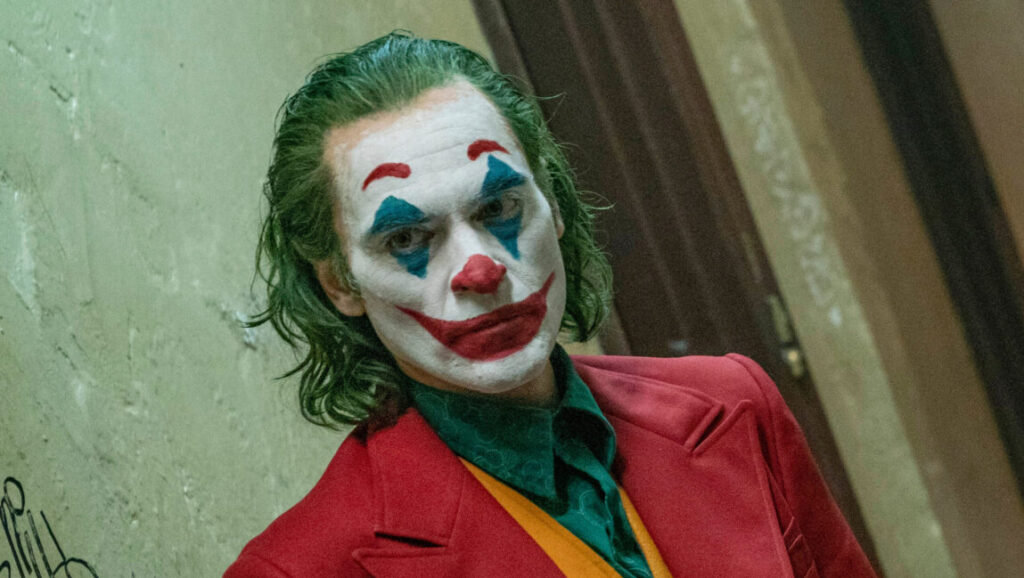Stick with me here: what if someone made a superhero movie, but, and I’m just spitballing, they took out all the superhero stuff so it was just, like, a regular movie? A real movie. That’s the ostensibly revelatory tack Hangover auteur Todd Phillips has taken with Joker, a profoundly useless film that’s been produced and packaged under the illusion that it’s an antidote to comic book films’ corporate and cultural hegemony and therefore a serious reckoning with The Way We Live Now ™ in a way those allegedly more childish entertainments never could be.
Joaquin Phoenix is Arthur Fleck, a character so offensively and stereotypically coded as mentally ill he might as well have stumbled out of an 80s TV medical drama. He twitches, he laughs uncontrollably, he’s got zero boundaries or social skills, he entertains violent thoughts, he’s bad with girls, and he lives with his mom. Irony of ironies, this congenial fellow’s job is as a clown, though he longs to be a standup comic. The street punks in grimy, garbage-strike-besotted Gotham City (basically New York circa 1981, for no discernible reason other than that Phillips, like all boring and trend-conscious filmmakers, associates that time period and aesthetic with “serious” movies), beat him up (they seem like they’d beat up anyone at random though). His boss fires him (for carrying a gun around children). He bombs at the comedy club (although nobody is mean to him — they just don’t laugh). So yes, as far as he’s concerned, everyone in this miserable world is against him. Eventually, you guessed it, he’ll show them. Phoenix does his Phoenix thing, an amped-up version of the instability he filled with such nuance in The Master or You Were Never Really Here, but using crutches like a ridiculous “creepy” laugh or spontaneously breaking into dance moves. He could do this in his sleep.
A profoundly useless film.
And so The Joker, Batman’s arch-nemesis, a world-famous pop character whose key legacy is that of an unknowable, demonic agent of chaos, has been rendered into the most generic Travis Bickle knockoff imaginable, a man who would not take it anymore, who blames society (quite literally and vocally here, in one of the film’s final and most embarrassing moments) for all his ills. Certainly it’s obvious that Phillips’s main impulse here is to channel Martin Scorsese’s Taxi Driver and The King of Comedy, movies that held the proverbial mirror up to us all, but of course unlike those films this one’s got absolutely nothing to say beyond the vaguest hints that, shocker of shockers, we are all culpable in driving those among us most likely to be violent to that very end. It presents this idea with a hands-off attitude disguised as ambiguity — not in the spirit of reflection or confrontation, or even the old stupid canard of “indicting the audience,” but in the way a dog shits on the carpet and seems to vaguely blame you for not letting it outside in the first place, as if to say “You deal with it.” At one point, Arthur even says, “I don’t believe in anything. I just thought it would be good for my act.”
And what does any of this have to do with Batman? Aside from yet another chance for audiences to see his parents get murdered, nothing. The IP namecheck is merely what it took to get this made. Much has been made about Joker‘s potential to incite violence or the possibility that it could be seen as an endorsement of its horrible protagonist’s actions. That’s honestly ascribing ambitions to this film that it not only can’t live up to, but which it displays nearly zero interest toward. Any moral handwringing over it and any attention paid to it is too much. Maybe the real symptom of an angry, downtrodden, disenfranchised society of reactionaries isn’t a mentally ill man who feels forced to act on his worst impulses. Maybe it’s just a stupid, lazy movie.


Comments are closed.